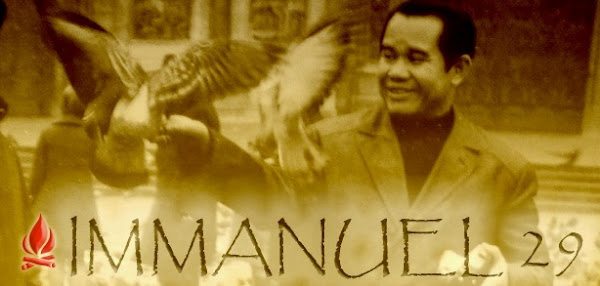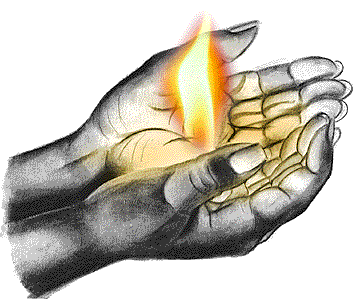Proverbs 23:26 “O my son, give me your heart. May your eyes delight in my ways of wisdom” NLT
Ezekiel 36:26-27 “And I will give you a new heart with new and right desires, and I will put a new spirit in you. I will take out your stony heart of sin and give you, obedient heart. And I will put my Spirit in you so you will obey my laws and do whatever I command.” (NLT)
I wrote in my previous blog that giving and expecting a reward is sinful. It feeds on the selfishness, greed, and sinful desires of the heart which are the lust of the flesh, lust of the eyes, and pride of life (1 john 2:16).
What is the underlying principle in biblical giving?. There is a lovely saying which says “You give without loving, but you cannot love without giving.” The other principle in biblical giving is obedience. We read in Exodus 25:1-2 “And the LORD spoke unto Moses, saying, Speak unto the children of Israel, that they may bring me an offering: of every man that giveth with his heart ye shall take my offering. This the first time we read that God commanded Moses to take an offering for the making of the tabernacle. But it took Moses sometime in the Holy Mountain communing with God. The people became restless with nothing to do. What shall they with the offerings of gold, silver, and bronze? They forced Aaron to make a god for them from the offerings they brought. The celebrating people were horrified when Moses angrily threw the tablets of stone and broke it. The terror of God’s people killed thousands of them. It is wrong and sinful to use God’s offerings for an ungodly works. Life must go on to a new beginning. New tablets of the Ten Commandments were given to Moses for the people to obey and observe. They were again asked to make an offering. We read in EXODUS CHAPTER 35:4—5;21-22; 29 “And Moses spoke unto all the congregation of the children of Israel saying, ‘This is the thing which the LORD commanded, saying; Take ye from among you an offering to the LORD; whoever is of a willing heart, let him bring it to the LORD; gold, and silver, and brass … and the children of Israel brought a willing offering unto the LORD.”
What we learn is God asked for an offering and the people responded willingly and obediently
if they do not listen and obey. Moses was a great leader yet he never demands or threatens. Even as he speaks for the LORD he says “Whosoever is of a willing heart” and the people responds with reverence, love, and obedience. “and they brought yet unto him free offerings every morning” (Exo. 36:3b).The overwhelming response of the people made Bezaleel come to Moses with the report “The people bring much more than enough for the service of the work, which the LORD commanded to make. and Moses gave commandment … Let neither man nor woman make any more work offering of the sanctuary. So the people were restrained from bringing.” (Exo 36:5-6.) Thus the work on the Tabernacle prospered as they build together.”
People built temples to express their highest desire to worship God. The builders have learned the virtue of building together. The leadership conceive the plans, show the plans to the people, the people responds and give their willing involvement and support, godly and qualified (gifted) artisans working together build to glorify God. God is pleased with their work and dwells among them.
Ezekiel 36:26-27 “And I will give you a new heart with new and right desires, and I will put a new spirit in you. I will take out your stony heart of sin and give you, obedient heart. And I will put my Spirit in you so you will obey my laws and do whatever I command.” (NLT)
I wrote in my previous blog that giving and expecting a reward is sinful. It feeds on the selfishness, greed, and sinful desires of the heart which are the lust of the flesh, lust of the eyes, and pride of life (1 john 2:16).
What is the underlying principle in biblical giving?. There is a lovely saying which says “You give without loving, but you cannot love without giving.” The other principle in biblical giving is obedience. We read in Exodus 25:1-2 “And the LORD spoke unto Moses, saying, Speak unto the children of Israel, that they may bring me an offering: of every man that giveth with his heart ye shall take my offering. This the first time we read that God commanded Moses to take an offering for the making of the tabernacle. But it took Moses sometime in the Holy Mountain communing with God. The people became restless with nothing to do. What shall they with the offerings of gold, silver, and bronze? They forced Aaron to make a god for them from the offerings they brought. The celebrating people were horrified when Moses angrily threw the tablets of stone and broke it. The terror of God’s people killed thousands of them. It is wrong and sinful to use God’s offerings for an ungodly works. Life must go on to a new beginning. New tablets of the Ten Commandments were given to Moses for the people to obey and observe. They were again asked to make an offering. We read in EXODUS CHAPTER 35:4—5;21-22; 29 “And Moses spoke unto all the congregation of the children of Israel saying, ‘This is the thing which the LORD commanded, saying; Take ye from among you an offering to the LORD; whoever is of a willing heart, let him bring it to the LORD; gold, and silver, and brass … and the children of Israel brought a willing offering unto the LORD.”
What we learn is God asked for an offering and the people responded willingly and obediently
if they do not listen and obey. Moses was a great leader yet he never demands or threatens. Even as he speaks for the LORD he says “Whosoever is of a willing heart” and the people responds with reverence, love, and obedience. “and they brought yet unto him free offerings every morning” (Exo. 36:3b).The overwhelming response of the people made Bezaleel come to Moses with the report “The people bring much more than enough for the service of the work, which the LORD commanded to make. and Moses gave commandment … Let neither man nor woman make any more work offering of the sanctuary. So the people were restrained from bringing.” (Exo 36:5-6.) Thus the work on the Tabernacle prospered as they build together.”
People built temples to express their highest desire to worship God. The builders have learned the virtue of building together. The leadership conceive the plans, show the plans to the people, the people responds and give their willing involvement and support, godly and qualified (gifted) artisans working together build to glorify God. God is pleased with their work and dwells among them.





